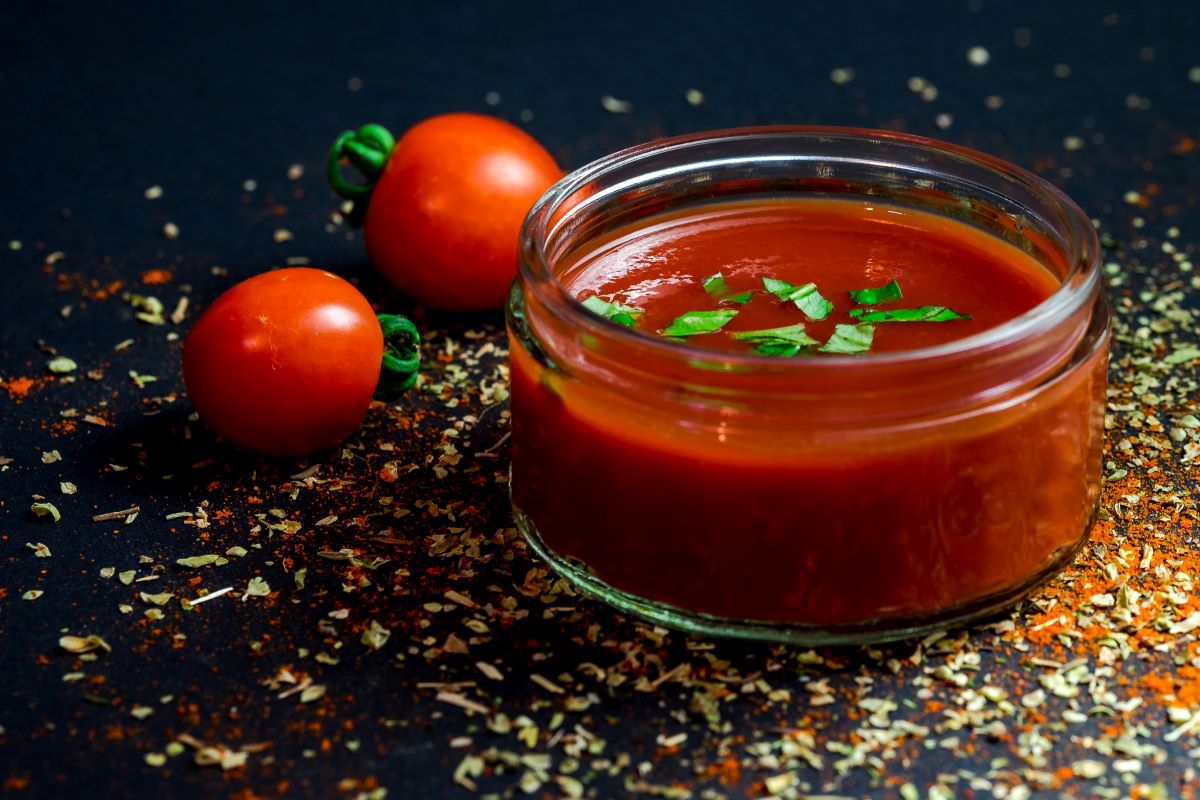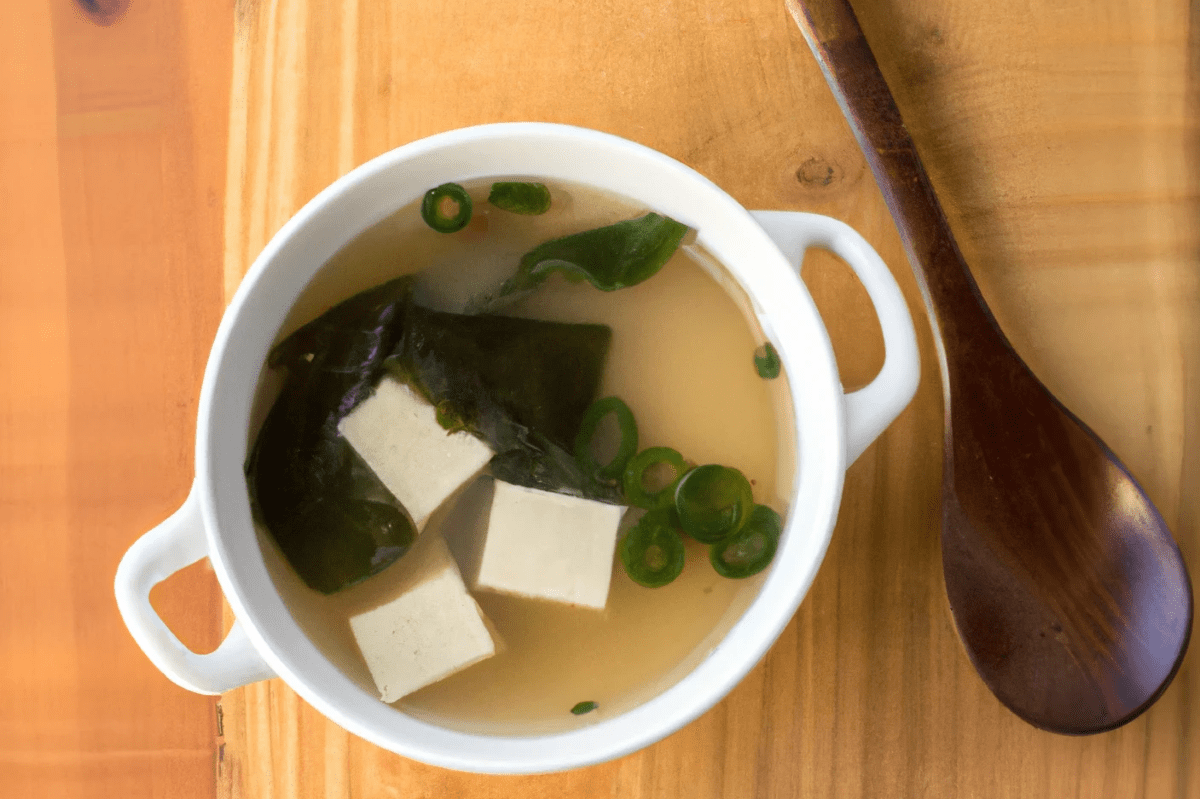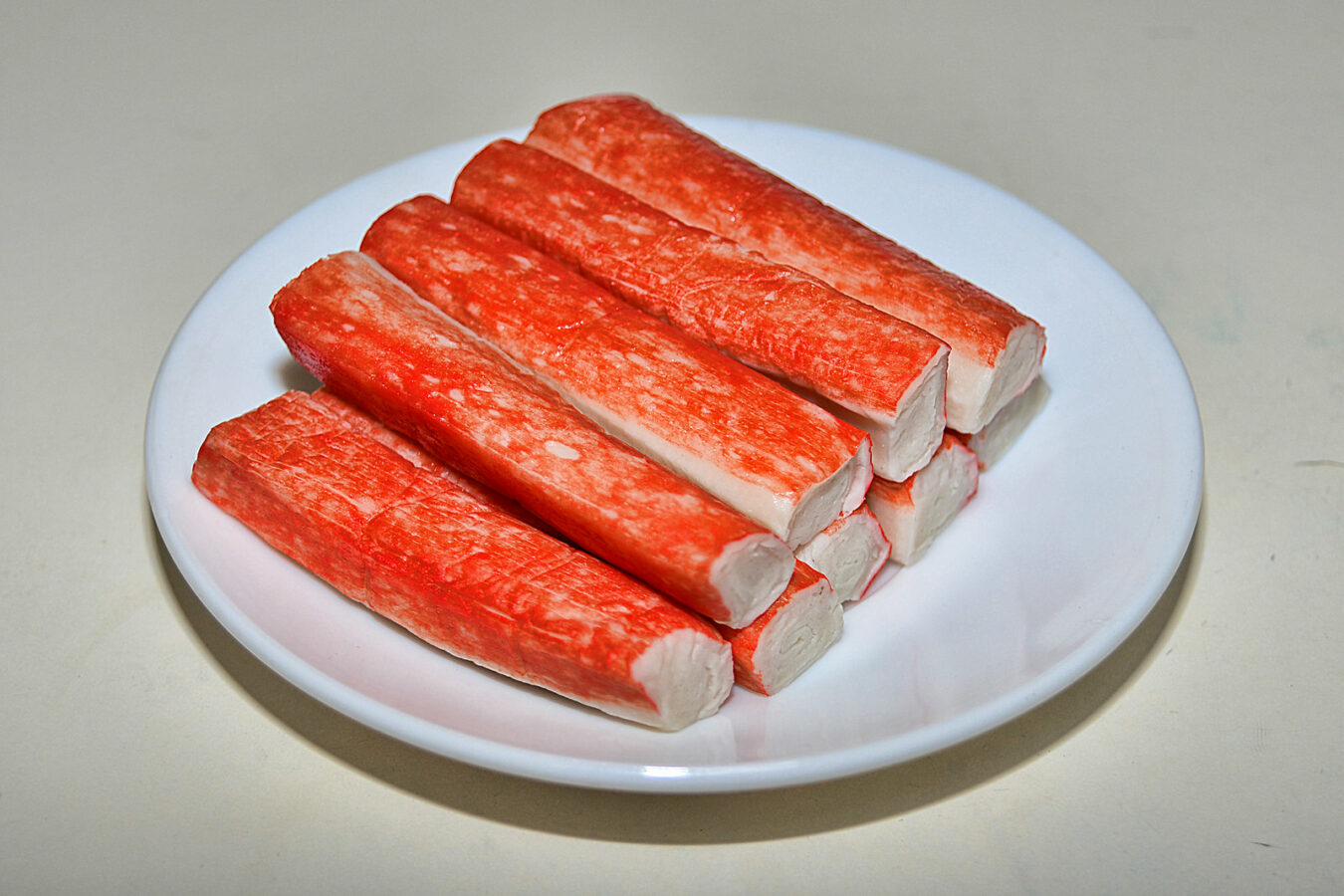Table of Contents
When it comes to condiments, ketchup is an undisputed favorite for many. But if you’re vegan, you may wonder whether this ubiquitous sauce fits your dietary guidelines.
This article aims to provide a comprehensive guide on the vegan status of ketchup, along with insights into different types, non-vegan ingredients, and ongoing controversies within the vegan community.
Is Ketchup Vegan?
The short answer is: sometimes. Most commercial ketchups are generally vegan, consisting of tomatoes, vinegar, sugar (or high-fructose corn syrup), and spices. However, variations that incorporate non-vegan ingredients such as honey or animal-derived flavorings exist, so it’s always best to read the labels or make your own to be sure.
Non-Vegan Ingredients or Processes
If you’re a committed vegan, you must know some sneaky non-vegan ingredients or processes. For example, some ketchup brands might use sugar refined through bone char, which doesn’t align with vegan principles. Additionally, certain gourmet or specialty ketchup may use honey as a sweetener or even include cheese flavoring, so always scrutinize the ingredients list.
Keep an eye out for any confusing or scientific-sounding ingredients you’re unfamiliar with. E-numbers, for instance, can sometimes be non-vegan as they may be derived from animal products. Research or consult vegan resources to decode such ingredients.
Controversies or Gray Areas within the Vegan Community
The vegan community has a few controversies and gray areas concerning ketchup. One such issue pertains to the sugar used in ketchup production. As mentioned earlier, some sugars are processed using animal bone char (made with animal bones), raising ethical questions.
Another point of contention could be the environmental impact of sourcing tomatoes and other ingredients. Some vegans use ketchup from organic or locally sourced tomatoes to minimize their environmental footprint.
Beyond sugar (sometimes high-fructose corn syrup or beet sugar) and tomatoes, the other ingredients in ketchup could also be of concern. For example, vinegar production could involve animal-derived filtering agents. Some vegans opt for ketchup that specifies vegan-friendly vinegar to avoid any ethical dilemmas.
Types of Ketchup
When exploring the vegan-friendly ketchup realm, you’ll come across several types. First, there’s the traditional tomato-based ketchup, which is usually vegan. You may also find fruit ketchups, like mango or blueberry, that offer unique flavor profiles and are generally vegan.
Gourmet ketchups that include exotic spices or flavorings may require a closer look at their ingredient lists, as some could contain animal-derived products.
You might encounter ketchup infused with herbs like basil and rosemary or even edible flowers like lavender. While these can elevate the taste, they may sometimes be blended with non-vegan wine or spirit for flavor. Therefore, ensure you know the complete ingredient list and its vegan status before purchasing.
Vegan-Friendly Alternatives and Variations
In recent years, the market has been flooded with vegan-friendly alternatives to nearly every type of food, and ketchup is no exception. If the standard commercial options don’t meet your vegan requirements, worry not; plenty of substitutes are available.
You can find kinds of ketchup designed to meet specific dietary needs, such as low-sodium, low-sugar, or gluten-free, that are also vegan. Some specialty stores even offer international vegan ketchup variants, like curry ketchup popular in Germany, allowing you to explore flavors from around the globe while sticking to your vegan principles.
Store-Bought Alternatives
Several store-bought ketchups are specifically labeled vegan. Here are some options:
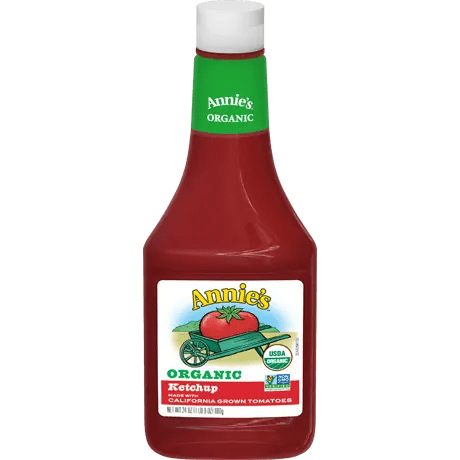
Annie’s Organic Ketchup
Annie’s offers a fully organic and vegan-friendly ketchup. It uses certified organic ingredients and avoids any animal-derived products.

Sky Valley Foods’ Sriracha Sauce
Sky Valley Foods’ Sriracha Sauce is a spicy alternative to regular ketchup certified vegan and organic.
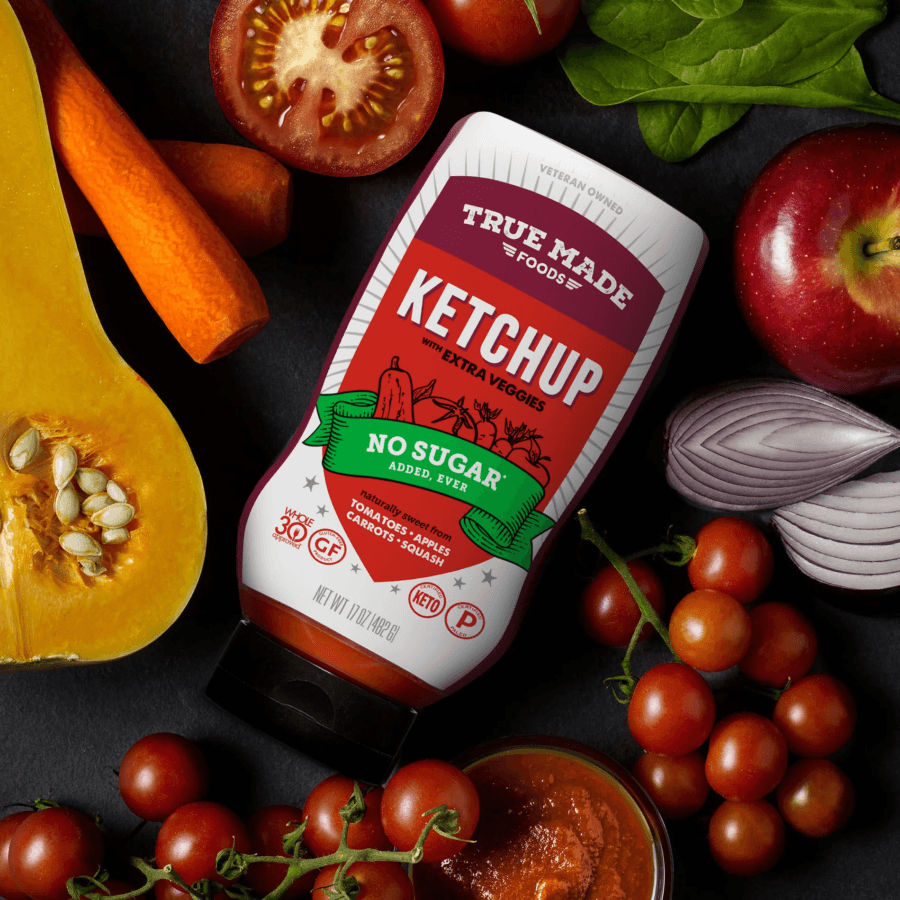
True Made Foods Vegetable Ketchup
Made with real vegetables like spinach, carrots, and butternut squash, True Made Foods’ ketchup alternative offers a nutritious vegan option.
Tips for Identifying Vegan-Friendly Options
When searching for vegan ketchup, there are a few things to keep in mind:
Check the Label: Look for certifications like “Certified Vegan” or “100% Plant-Based.”
Ingredient List: Always read the ingredient list for animal-derived products, including bone char-processed sugar and honey.
Company Website: Sometimes the product’s vegan status is detailed on the website, especially if the label needs more information.
Community Reviews: Online vegan communities often share recommendations and reviews of vegan-friendly products, including ketchup.
Homemade Versions
Making a homemade version is excellent if you prefer full control over what goes into your ketchup.
Ingredient Swaps
Here are some vegan-friendly ingredients you can use in your homemade ketchup recipe:
Agave Nectar or Maple Syrup: can replace honey or bone char-processed sugar.
Apple Cider Vinegar: A good substitute for any vinegars that may not be vegan-friendly.
Plant-Based Flavorings: Use plant-based umami sources like soy sauce or nutritional yeast if you want something different.
How to Use Vegan Alternatives in Recipes
Vegan ketchup and its alternatives can be used, like traditional ketchup. They are perfect for dipping fries, as a base for sauces, or as a spread on vegan burgers and hot dogs. You can also use them in cooking to flavor vegan stews or casseroles.
The key is to use them to complement the other ingredients, keeping in mind the specific flavor profiles of any exotic or gourmet vegan kinds of ketchup you may choose.
How Ketchup is Made
Understanding how ketchup gets made can give you a better idea of what to look for when seeking a vegan-friendly option. The process typically involves a blend of primary and secondary ingredients, some of which may not align with a vegan lifestyle.
Primary Ingredients
The backbone of any ketchup recipe primarily consists of:
Tomatoes: Usually used as tomato paste, puree, or crushed tomatoes, they form the ketchup base.
Vinegar: This adds the characteristic tanginess to the ketchup.
Sweeteners: Sugar (or high-fructose corn syrup) or other sweeteners like honey are often added to balance the acidity of the tomatoes and vinegar.
Salt: To bring out the flavors and act as a preservative.
Spices: Common spices include onion powder, garlic powder, and sometimes a hint of cinnamon or clove.
Secondary Ingredients/Additives
In addition to the primary ingredients, ketchup often contains secondary ingredients or additives to improve texture, shelf life, or flavor. These can include:
Thickeners: Such as modified food starch, are sometimes used to provide a smoother texture.
Preservatives: Like sodium benzoate, are added to extend the product’s shelf life.
Flavor Enhancers: Such as monosodium glutamate (MSG), may be used to boost the flavor.
Colorants: Some commercial kinds of ketchup use artificial colors to maintain a consistent appearance.
Acidifiers: Citric acid is sometimes used to regulate the pH levels.
By understanding what goes into your ketchup, you can make a more informed choice that aligns with your vegan lifestyle. Watch for animal-derived additives or controversial ingredients to ensure your ketchup is vegan-friendly.
Sourcing and Ethical Considerations
Regarding ketchup, the ethics and sustainability of ingredient sourcing are often overlooked aspects that can hold significance, especially for vegans concerned not just about animal welfare but also broader ethical issues.
Environmental Impact
The production of ketchup’s primary ingredient, tomatoes, can have an environmental toll. Intensive farming practices may lead to soil degradation while using synthetic fertilizers and pesticides contributes to water pollution and greenhouse gas emissions.
Additionally, the production and transportation of bottled ketchup contribute to its carbon footprint. Some companies address these issues by adopting organic farming methods and eco-friendly packaging.
Ethical Impact
While ketchup does not contain animal-derived ingredients, using certain fertilizers in tomato farming can involve animal by-products. Moreover, while technically vegan, certain additives may be tested on animals, which concerns some in the vegan community.
Companies that adhere to ethical sourcing and cruelty-free practices often label their products as such, giving consumers an ethical option.
Labor Practices
The labor practices involved in ketchup production also deserve attention. Some farms that supply tomatoes have faced criticism for unfair labor practices, including poor working conditions and inadequate wages.
However, many companies are taking steps to improve labor conditions by directly overseeing the farming practices or sourcing their tomatoes from farms certified by labor rights organizations.
By being conscious of these ethical considerations, you can choose a ketchup that suits your vegan lifestyle and aligns with your broader ethical principles.
FAQ
Frequently asked questions can clarify any lingering uncertainties about ketchup and its compatibility with a vegan lifestyle.
Why might some ketchup not be vegan?
Some kinds of ketchup may not be vegan due to the inclusion of animal-derived additives, such as certain types of sugar processed with bone char (animal bones), or due to ethical issues like environmental sustainability and labor practices.
How can I ensure my ketchup is vegan-friendly?
To ensure your ketchup is vegan-friendly, look for labels that explicitly state the product is vegan, and scrutinize the ingredient list for any animal-derived additives. Checking for ethical and sustainability certifications can also be beneficial.
Can I easily make my homemade ketchup?
Yes, you can easily make your homemade ketchup using simple ingredients like tomatoes, vinegar, and spices, allowing you to control exactly what goes into it and tailor it to your vegan preferences.
